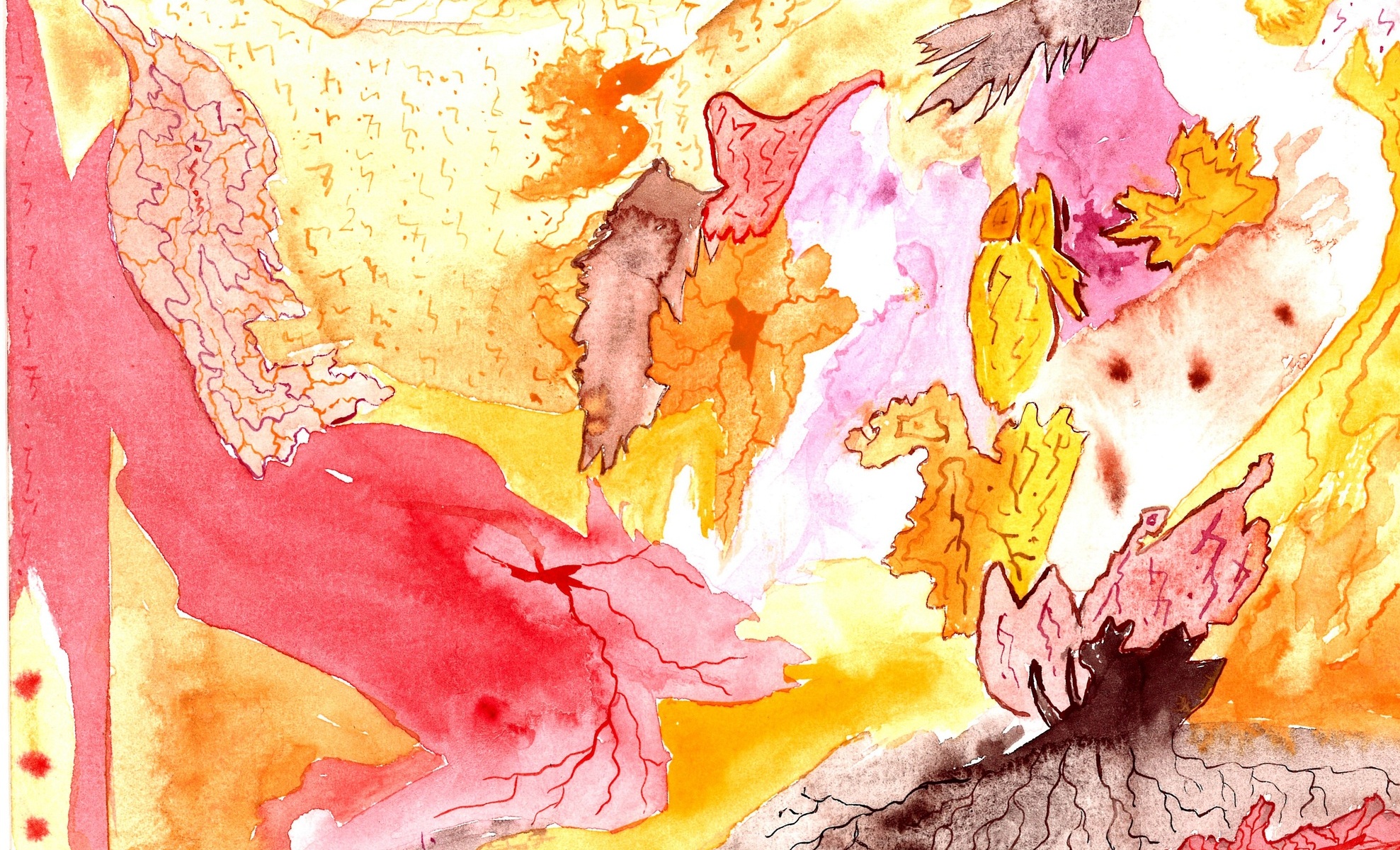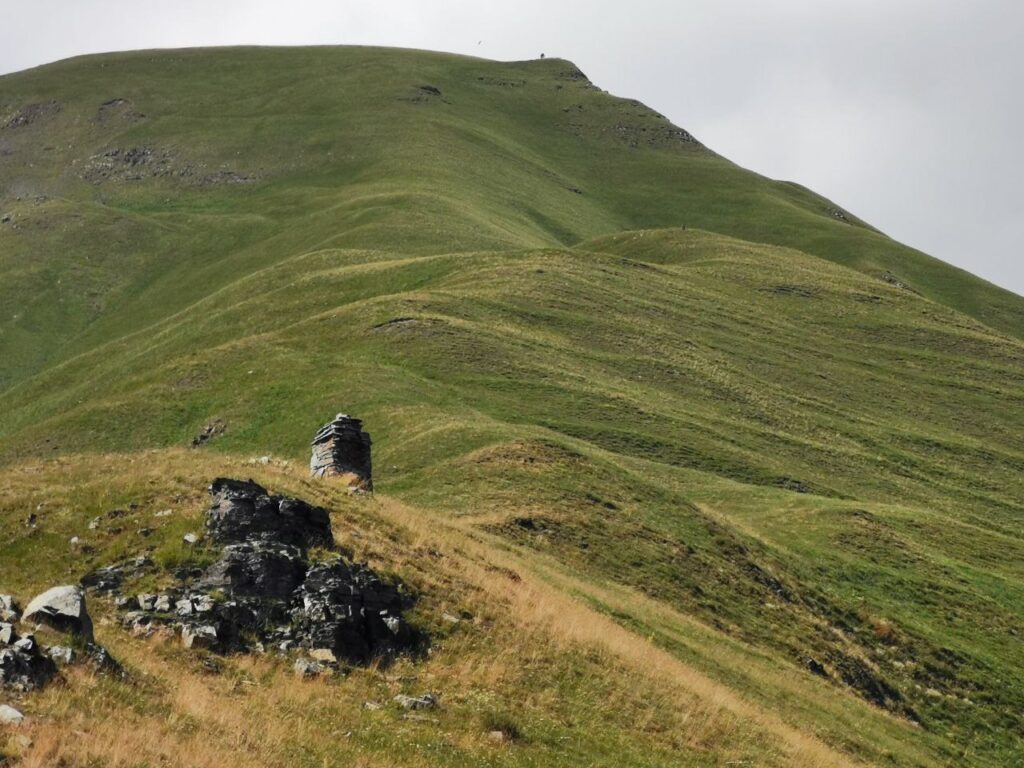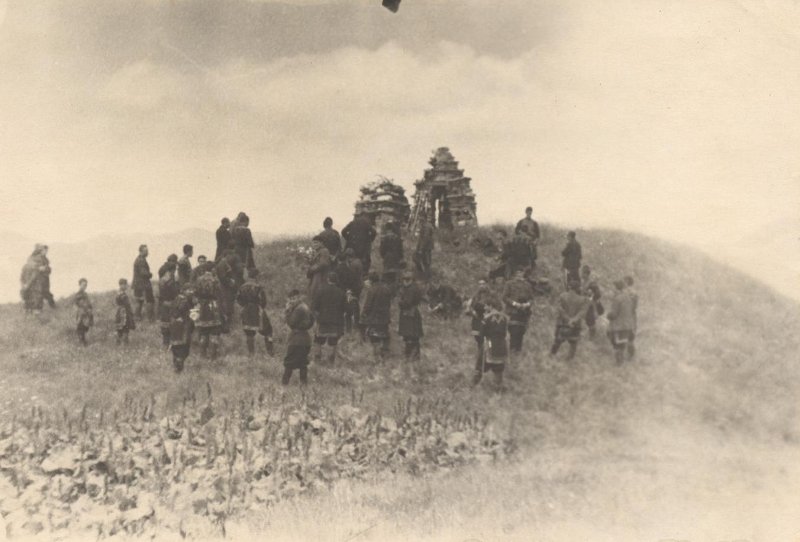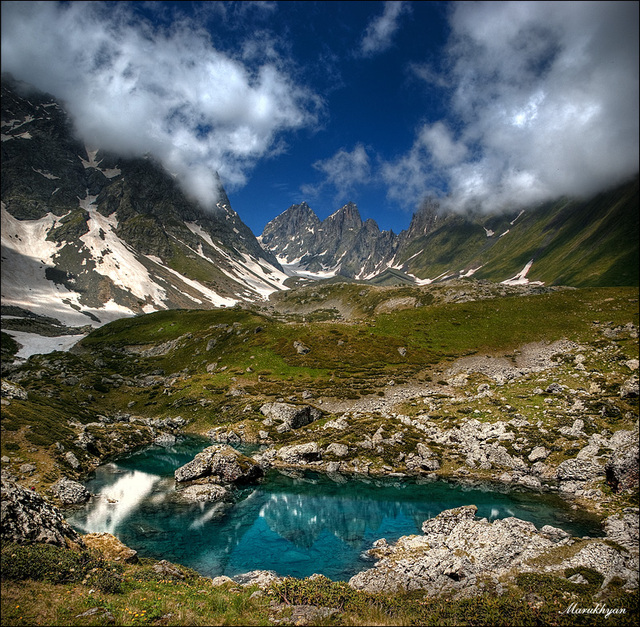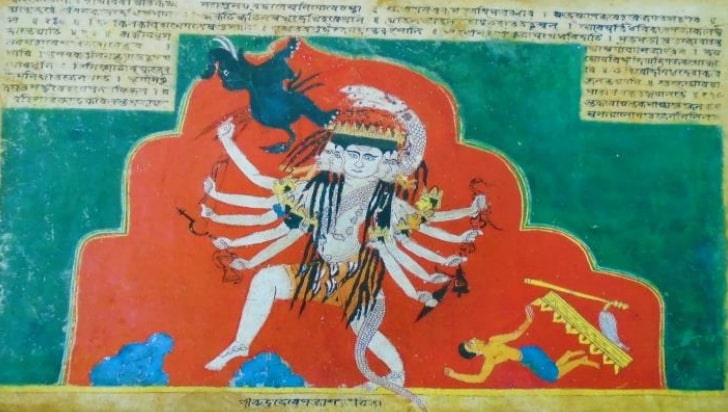
The Khevsur cosmogony1 starts with the battle of “the Children of God”/ “ღვთისშვილნი” against the Devis. “The supreme God”/ “მორიგე ღმერთი”2 sends his children down to earth, so they help the Khevsurians to claim property on the Caucasian highlands. Those lands are inhabited by beings called “Devis”/ “დევი”. The Devis are ambiguous creatures, who seem to be in complex relationships with the local humans. Some are friends with them and others will have them for dinner. The Devis are big, strong and wild. “The children of God”, who help the Khevsurs, on the other hand, carry angel-like properties. They are warriors of God, who fight in the name of a higher spirit, the God in the heavens.
The Khevsurs are pagan people. They worship pre-Christian indigenous deities. It is interesting though, how we find treats within Khesvur beliefs, that are typical for monotheistic religions, such as a strong hierarchy and a concept of evil versus good. The killing of the Devis is justified by their wild nature and their wickedness.3 Even though the Devis are often mentioned in the Khevsur cosmogony and also broadly in Georgian folklore, we don’t know much more about them other than their bad reputation, that stems from an antagonising human viewpoint. So let’s dig a bit deeper. Etymologically the word “Devi” derives from the Zoroastrian “Daevas”, cited as evil forces in the Zoroastrian religious texts called Avestas. If we trace the word even further back we find, that the Zoroastrian “Daevas” – the demons – and the Indian “Devis/ Devas” – the Gods – share origins. So let’s explore together and trace this wild ride from “God” to “Demon”.
Continue reading “Georgian Devis: Demons or Ancient Deities?”